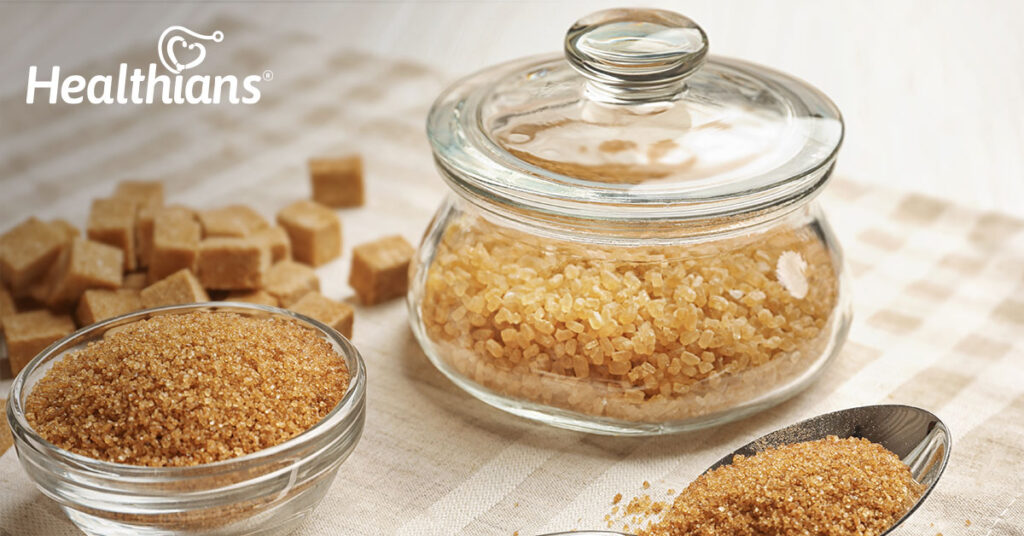introduction
Demerara sugar is a type of minimally processed cane sugar that originates from the country of Guyana, located in South America. It is named after the Demerara River, which runs through the country.
Demerara sugar is similar to brown sugar, but it has a coarser texture and larger crystals. It is made by pressing the juice from the sugarcane and then boiling it to create a thick, dark syrup. The syrup is then dried and broken into small crystals, which are a light brown colour due to the presence of molasses.
Compared to white sugar, demerara sugar is less refined, which means it retains some of the molasses and minerals that are stripped away during the refining process. This gives it a slightly more complex flavour and a slightly higher mineral content than white sugar.
This type of sugar has gained popularity in recent years due to its perceived health benefits over refined white sugar. In this article, we will explore the nutritional values of Demerara sugar.
Calories and Carbohydrates
Demerara sugar is a carbohydrate-rich food that contains around 380 calories per 100 grams. It is important to note that one teaspoon of Demerara sugar (4 grams) contains 15 calories. One tablespoon of Demerara sugar (12 grams) contains 48 calories. Demerara sugar contains a high amount of carbohydrates, with around 96 grams of carbohydrates per 100 grams of sugar. However, Demerara sugar also contains some fibre (0.5 grams per 100 grams), which slows down the absorption of sugar into the bloodstream.
Antioxidants
Demerara sugar contains some antioxidants, including polyphenols and flavonoids. Antioxidants are beneficial because they help to protect the body against damage caused by harmful molecules called free radicals. However, it is important to note that the amount of antioxidants in Demerara sugar is relatively small compared to other sources, such as fruits and vegetables.
Glycemic Index
The glycemic index (GI) is a measure of how quickly carbohydrate-rich food raises blood sugar levels. Demerara sugar has a lower glycemic index compared to white sugar, meaning that it is absorbed more slowly by the body, resulting in a slower and more sustained release of energy. The GI of Demerara sugar is around 65, compared to white sugar which has a GI of around 80.
Vitamins and Minerals
Demerara sugar contains some vitamins and minerals, including calcium, iron, and potassium. One hundred grams of Demerara sugar contains around 85 milligrams of calcium, which is approximately 9% of the recommended daily intake for adults. It also contains around 2.6 milligrams of iron, which is approximately 14% of the recommended daily intake for adults. Potassium is also present in Demerara sugar, with around 133 milligrams per 100 grams.
Final thoughts
Overall, Demerara sugar contains more nutrients than refined white sugar, including some vitamins and minerals. However, it is important to remember that Demerara sugar is still a type of sugar and should be consumed in moderation as part of a balanced diet.
In terms of baking, demerara sugar can be used in place of white sugar in recipes where a slightly deeper flavour and crunchier texture are desired, such as in cookies or crumbles.
However, excess sugar consumption has been linked to numerous health problems, including obesity, diabetes, and heart disease.
Furthermore, you should also undergo preventive health checkups. These health checkups give a complete report about your health, allowing you to take necessary precautionary measures to improve your well-being and keep a host of ailments at bay.





